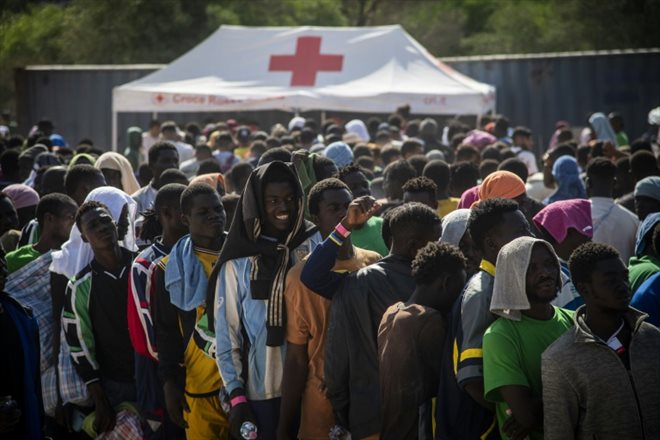Hungarian Prime Minister Viktor Orban arrives for a European summit in Granada, southern Spain, on October 6, 2023 (AFP/JORGE GUERRERO)
Populist Polish and Hungarian leaders proclaimed loudly on Friday at a summit of the Twenty-Seven in Spain their fierce opposition to the reform of the European migration system, two days after a key agreement between member states.
“We are not afraid of the diktats that come from Brussels and Berlin,” thundered the Polish Prime Minister, Mateusz Morawiecki, arriving at this informal one-day summit organized in Granada (south). He reiterated his refusal to have a system of “distribution of illegal migrants” imposed on him, ten days before legislative elections in Poland which promise to be close.
His Hungarian counterpart Viktor Orban went even further in the inflammatory criticism.
“If you are legally violated, forced to accept something you don’t like, how is it possible to have a compromise, an agreement? It’s impossible,” he said.
The subject of immigration, one of the thorniest among the Twenty-Seven, was put on the agenda of this summit following the recent influx of migrants on the small Italian island of Lampedusa, which reminded the urgency of a European response.

Informal summit of EU members, October 6, 2023 in Granada, Spain (AFP/Ludovic MARIN)
On Wednesday, the ambassadors of EU countries finally agreed on a regulation setting up a mandatory solidarity mechanism between member states in the event that one of them is faced with an “exceptional situation ” linked to “massive” arrivals of migrants at its borders.
The text, which also provides for a regime derogating from traditional asylum procedures, less protective for migrants, had to be the subject of a compromise to overcome German, then Italian, reluctance.
– “Big success” –
This regulation, the last piece of the EU Asylum and Migration Pact which must still be the subject of negotiations with the European Parliament, was approved by the Member States by qualified majority as the treaties provide, and not by unanimity as demanded by Poland and Hungary.
These two countries voted against the text, while Austria, Slovakia and the Czech Republic abstained.
The President of the European Commission Ursula von der Leyen welcomed a “great success” on Friday.

Italian Prime Minister Giorgia Meloni arrives at the European Political Community summit on October 5, 2023 in Granada, Spain (AFP/Thomas COEX)
The day before, far-right Italian Prime Minister Giorgia Meloni had also expressed her satisfaction.
“Europe’s perception and ambitions in matters of migration are evolving towards a more pragmatic line of legality, of the desire to fight traffickers, of wanting to stop illegal immigration,” she said on Thursday. .
Poland and Hungary demanded, without success, that the final declaration of the Grenada summit include a reference to the need for unanimity to adopt migration reform, we learned from diplomatic sources.
– Hardened declaration –
This disagreement could thwart a joint declaration on migration. This is what already happened during a summit in Brussels at the end of June-beginning of July, when the Polish-Hungarian duo blocked the adoption of conclusions to indicate its opposition to two other texts of the migration pact approved by the Member States shortly before.

Migrants gathered in front of the Lampedusa reception center, September 14, 2023 in Italy (AFP/Archives/Alessandro Serranò)
The declaration on migration under discussion for Friday’s summit has, however, been toughened over the course of its preparation. The project, seen by AFP, underlines in particular the need to deal with irregular immigration “immediately and with determination” and to “intensify returns” of irregular migrants.
It also affirms the EU’s determination to establish “mutually beneficial global partnerships with countries of origin and transit”, such as the one signed in July with Tunisia in order to reduce arrivals of migrants from this country.
This memorandum of understanding is, however, the subject of controversy, linked to concerns about respect for the rights of migrants in this country but also to criticism from certain member states who complained of not having been sufficiently involved in its negotiation. .
The recent statements by Tunisian President Kais Saied, refusing and describing as “insignificant” the European funds allocated to his country, have further fueled doubts about this partnership.
© 2023 AFP
Did you like this article ? Share it with your friends using the buttons below.




